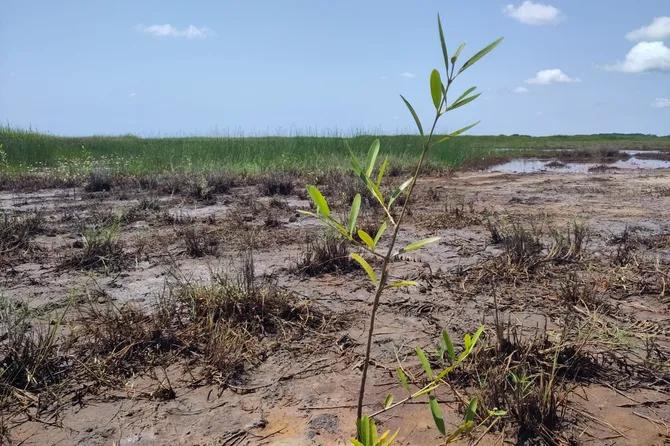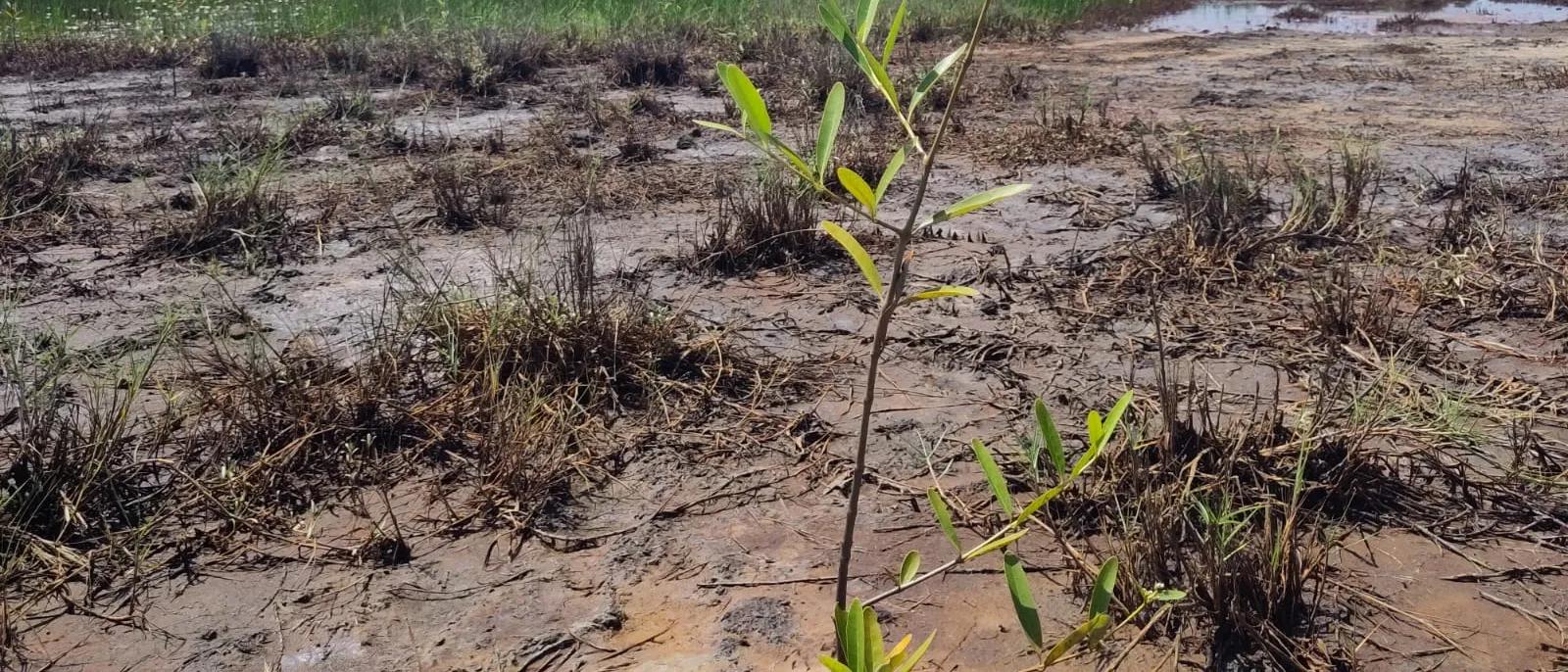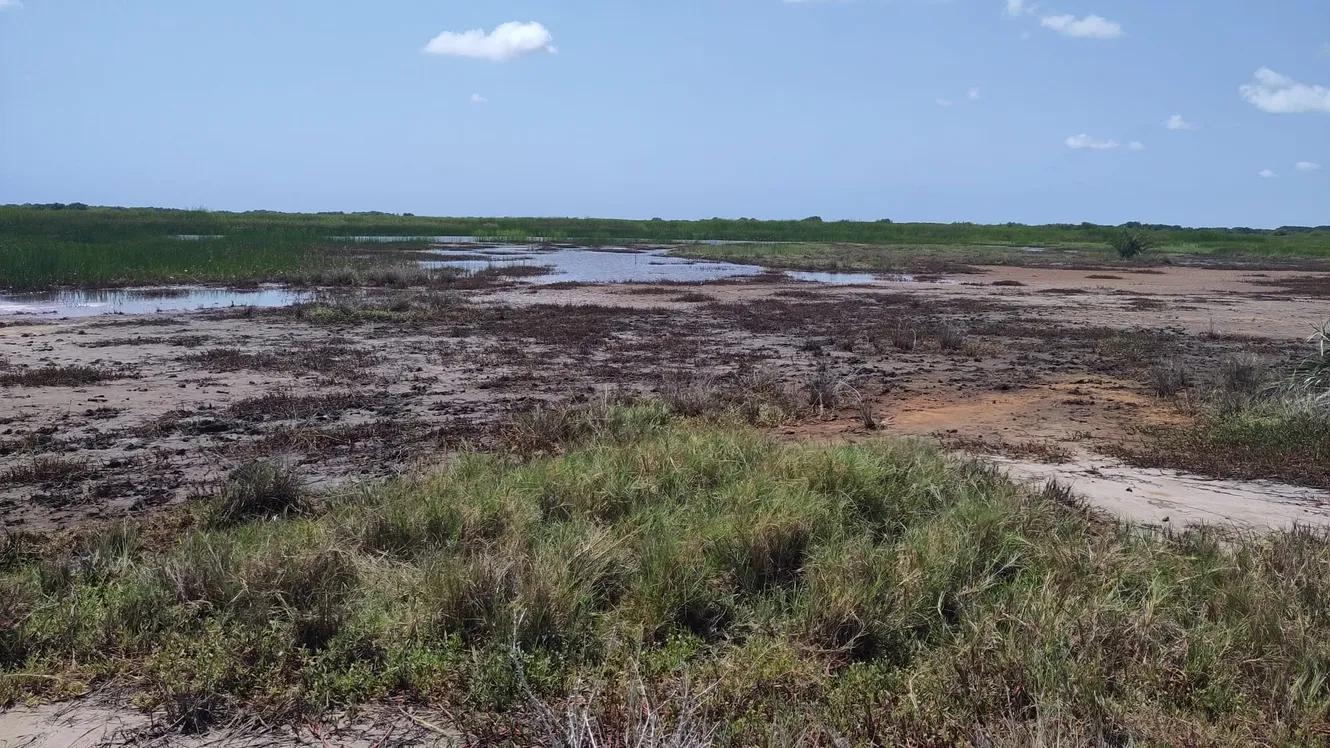
Brazil
Infrastructure
Friends of the Earth Ghana’s preparation project tests the feasibility of using modern drone technology to restore mangroves in the Keta lagoon in Ghana. Besides reversing the loss of the trees, the goal of this preparatory phase funded by FID is to improve local livelihoods while addressing key questions related to carbon storage, social factors, and technology for restoration.
Project deployed by:


Tree cover in Ghana has decreased by 22% since 2000 due to various reasons such as over-harvesting, land conservation issues, wildfires, pollution, overgrazing, and disease. This decline is especially impacting mangrove trees along the coast, harming various plants and animals. Moreover, it is causing problems by reducing carbon storage and threatening the livelihoods of local people who rely on mangroves. (Global Forest Watch, 2023 & Nonoo & Agyekumhene, 2022).
Efforts to restore the mangroves is particularly costly and complex because of the challenges in accessing restoration zones. The raising water level, mosquitoes and mud make it difficult for humans to move around and carry the necessary equipment to assess the area and plant seeds. (Nonoo & Agyekumhene, 2022).
Friends of the Earth Ghana (FoE Ghana) is collaborating with drone technology service providers on a project to test the effectiveness of modern drone technology in restoring mangroves compared to traditional methods. This innovative aerial planting technology is estimated to plant mangrove seeds at a rate of approximately 100-120 seedpods per minute, which is up to twelve times faster, so possibly cost-effective, and less labor intensive compared to traditional methods.
During the initial phase funded by FID, the objectives of FoE Ghana include:
The 7-month-long project is held in partnership with Forestry Research Institute of Ghana (FORIG) which will provide expertise for carbon assessments. Training local beneficiaries in using this technology is also vital so that they can continue the work independently in the future.

The long-term aim of the project is to reverse the mangrove loss along Ghana's eastern coast with the aim to improve local livelihoods and to help capture greenhouse gases. There is also potential for community ecotourism by investing in infrastructure such as boardwalks for tourists to enjoy the mangroves and migratory birds, providing further economic benefits for the local communities.
The preparation fund will help the project team answer important questions:
This project did not lead to subsequent funding from FID.
Projects
Projects funded by FID

Brazil
Infrastructure

Senegal
Health
A digital learning platform leveraging AI to train community health workers in Senegal

Liberia
Climate